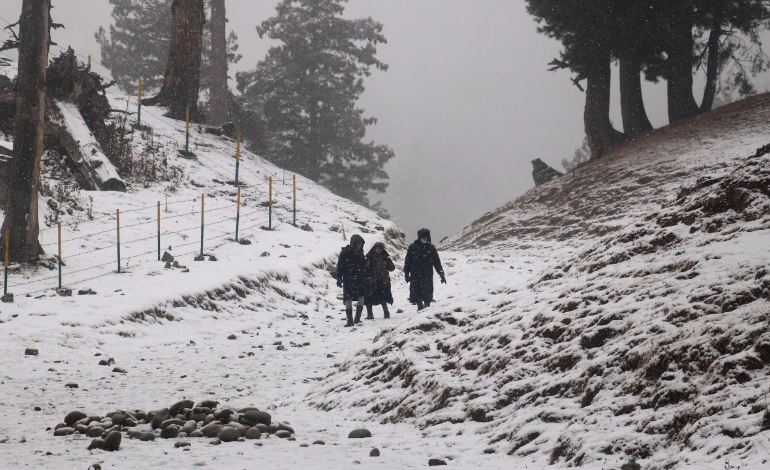
Srinagar, Dec 12 : Night temperatures recorded a dip at most places in Kashmir Valley with Gulmarg being the coldest place at minus 4.4°C on Monday.
A meteorological department official here told GNS Srinagar saw a fall by nearly two degree Celsius, recording a low of 1.6°C against 3.5°C on the previous night. The temperature was 2.2°C above the normal for this time of the year in Srinagar, he said.
Qazigund recorded a low of minus 0.2°C against 2.6°C on the previous night. The temperature was 0.6°C above normal for the gateway town of Kashmir, he said.
He said that Pahalgam recorded a low of minus 2.6°C against minus 5.0°C on previous night and it was 0.6°C above normal for the famous tourist resort in south Kashmir’s Anantnag district, he said.
Kokernag recorded a low of0.3°C against 1.3°C on the previous night and it was 1.0°C above normal for the place, he said.
Gulmarg recorded a low of minus 4.4°C against minus 4.5°C on the previous night, the official said. It was 0.7°C below normal for the world famous skiing resort in north Kashmir’s Baramulla district, the official said.
In Kupwara town, the mercury settled at 2.2°C against 2.4°C on the previous night, the official said. It was 4.0°C above normal for the north Kashmir place, he said.
Jammu recorded a low of 9.1°C against 8.9°C on the previous night. It was 0.9°C below normal for J&K’s winter capital, he said. Banihal recorded a low of 0.6°C (below normal by 1.5°C), Batote 3.6°C (0.4°C below normal), Katra 9.1°C (0.5°C above normal) and Bhadarwah 2.7°C (1.4°C above normal).
In Ladakh, Leh recorded minus 9.0°C and Kargil minus 9.8°C, the official said.
Mainly dry weather has been predicted till December 20 in Jammu and Kashmir and Ladakh. However, brief spell of light rain or snow may occur at isolated places over higher reaches, the MeT official added. (GNS)